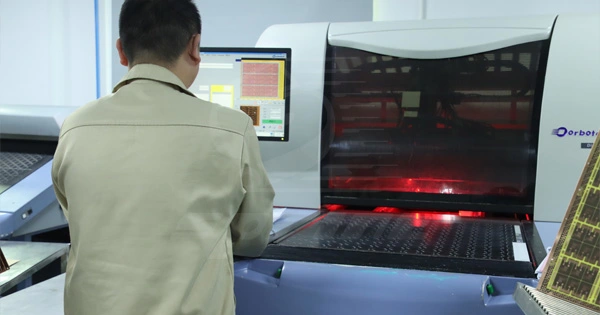In a world where technology evolves at lightning speed, the role of a trusted PCB Circuit Board Manufacturer has never been more vital. PCBs are the unsung heroes powering innovations—from renewable energy systems to next-gen AI hardware. At SprintPCB, we pride ourselves on being more than just a PCB Circuit Board Manufacturer; we’re a strategic partner driving technological breakthroughs through precision engineering, agile production, and customer-centric innovation. This 1800-word guide unpacks the essentials of selecting a world-class PCB Circuit Board Manufacturer, explores SprintPCB’s unique value proposition, and highlights industry trends shaping the future of electronics.
The Critical Role of a PCB Circuit Board Manufacturer in Today’s Tech Ecosystem
A PCB Circuit Board Manufacturer does far more than produce boards—it enables innovation. Whether it’s a lifesaving medical device or a satellite orbiting Earth, every electronic advancement starts with a meticulously crafted PCB.
Why Partnering with the Right Manufacturer Matters
- Technical Mastery: Expertise in advanced materials, signal integrity, and thermal management.
- Speed-to-Market: Rapid prototyping and scalable production to outpace competitors.
- Compliance & Reliability: Certifications like ISO 9001 and IPC Class 3 ensure adherence to global standards.
SprintPCB’s 18+ years of experience as a PCB Circuit Board Manufacturer have cemented our reputation for delivering boards that excel in performance, durability, and cost-efficiency.
Inside the Workshop: How a Top-Tier PCB Circuit Board Manufacturer Operates
To appreciate what sets elite manufacturers apart, let’s explore SprintPCB’s end-to-end workflow:
Collaborative Design & Engineering
- Client Consultation: Our engineers work closely with clients to understand application-specific needs—whether it’s high-speed data transfer for 5G or EMI shielding for industrial robotics.
- Advanced Design Tools: Leveraging Altium, OrCAD, and Cadence for simulations that optimize power distribution and minimize crosstalk.
- Prototyping: Functional prototypes are delivered within 48 hours, complete with DFM (Design for Manufacturing) feedback to refine designs.
Material Innovation
The foundation of every PCB lies in its materials. SprintPCB offers:
- High-Speed Laminates: Low-loss materials like Rogers 4000 for RF and microwave applications.
- Heavy Copper Boards: Up to 20 oz copper for high-power automotive systems.
- Flex & Rigid-Flex Substrates: Polyimide films for bendable wearables and military-grade equipment.
Precision Manufacturing
- Laser Direct Imaging (LDI): Achieves micron-level trace accuracy for HDI designs.
- Automated Optical Inspection (AOI): Scans every layer for defects like micro-cracks or misalignments.

- Surface Finishes: Options include ENIG (for corrosion resistance), Immersion Silver (for high-frequency use), and OSP (cost-effective for consumer electronics).
Rigorous Quality Assurance
- Electrical Testing: 100% continuity and hipot testing to eliminate short circuits.
- Environmental Stress Screening: Thermal shock tests (-55°C to 125°C) and humidity exposure.
- Cross-Sectional Analysis: Validates via integrity and plating thickness.
Cutting-Edge Technologies Redefining the PCB Circuit Board Manufacturer Landscape
To stay ahead, leading manufacturers like SprintPCB invest in transformative technologies:
AI-Driven Manufacturing
- Predictive Maintenance: Machine learning algorithms forecast equipment failures, reducing downtime.
- Smart Defect Detection: AI-powered AOI systems improve defect recognition accuracy by 40%.
HDI PCB
- Microvias & Stacked Vias: Enable 20+ layer boards for aerospace and data centers.
- Any-Layer Buildup: Eliminates traditional layer constraints, slashing board size by 50%.
Sustainable Manufacturing Practices
- Eco-Friendly Materials: Halogen-free laminates and lead-free solders.
- Closed-Loop Recycling: Reclaiming copper and solvents to reduce waste.
IoT & Industry 4.0 Integration
- Real-Time Production Monitoring: Clients track order progress via cloud platforms.
- Digital Twins: Virtual replicas of PCBs simulate performance under extreme conditions.
Industry Applications: Where a PCB Circuit Board Manufacturer Makes an Impact
From everyday gadgets to mission-critical systems, PCBs are everywhere. Here’s how SprintPCB empowers diverse sectors:
Automotive & Electric Vehicles (EVs)
- ADAS Controllers: Multi-layer boards with impedance control for LiDAR and radar systems.
- Battery Management Systems (BMS): High-voltage PCBs ensuring safe EV operation.
Healthcare & MedTech
- Portable Diagnostic Devices: Flex PCBs for compact, lightweight designs.
- Implantable Electronics: Biocompatible materials for pacemakers and neurostimulators.
Aerospace & Defense
- Avionics: MIL-spec boards resistant to vibration and radiation.
- Satellite Communication: RF-optimized designs for seamless signal transmission.
Case Study
SprintPCB developed a 14-layer rigid-flex PCB for a Mars rover prototype, reducing weight by 35% while maintaining signal integrity in extreme temperatures.
How to Evaluate a PCB Circuit Board Manufacturer: Key Criteria
Choosing the right partner requires due diligence. Prioritize manufacturers that offer:
- Technical Expertise: Proven experience in your industry (e.g., medical, automotive).
- Certifications: UL, ISO, and IPC standards compliance.
- Scalability: Seamless transition from 10 prototypes to 10,000-unit batches.
- Transparency: Detailed documentation, including test reports and material certifications.
- Sustainability: Eco-friendly processes and materials.
- Supply Chain Resilience: Dual sourcing for critical components to avoid delays.
- Customer Support: 24/7 access to engineering teams for urgent revisions.
Why SprintPCB Stands Out
- 48-Hour Prototyping: Fastest turnaround in the industry.
- Global Reach: Manufacturing hubs in Asia, Europe, and North America.
- Cost Optimization: Value engineering to reduce BOM costs without compromising quality.
The Future of PCB Circuit Board Manufacturing: Trends to Watch
- 3D-Printed Electronics: Additive manufacturing for rapid, low-waste production.
- Embedded Components: Resistors and capacitors integrated into board layers.
- Quantum Computing PCBs: Superconducting materials like niobium for near-zero resistance.
- Bio-Compatible Circuits: Dissolvable PCBs for temporary medical implants.

